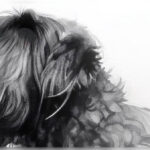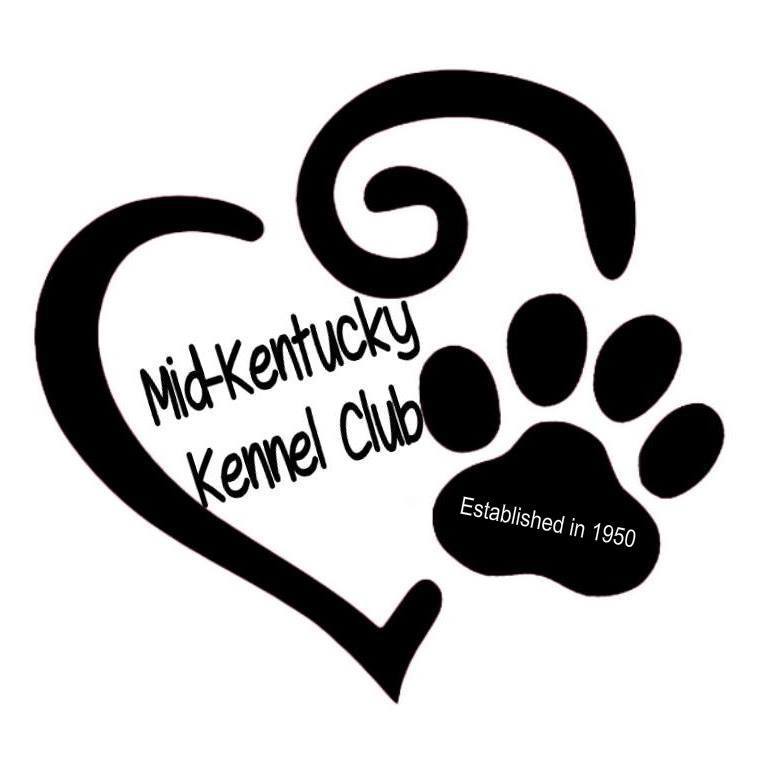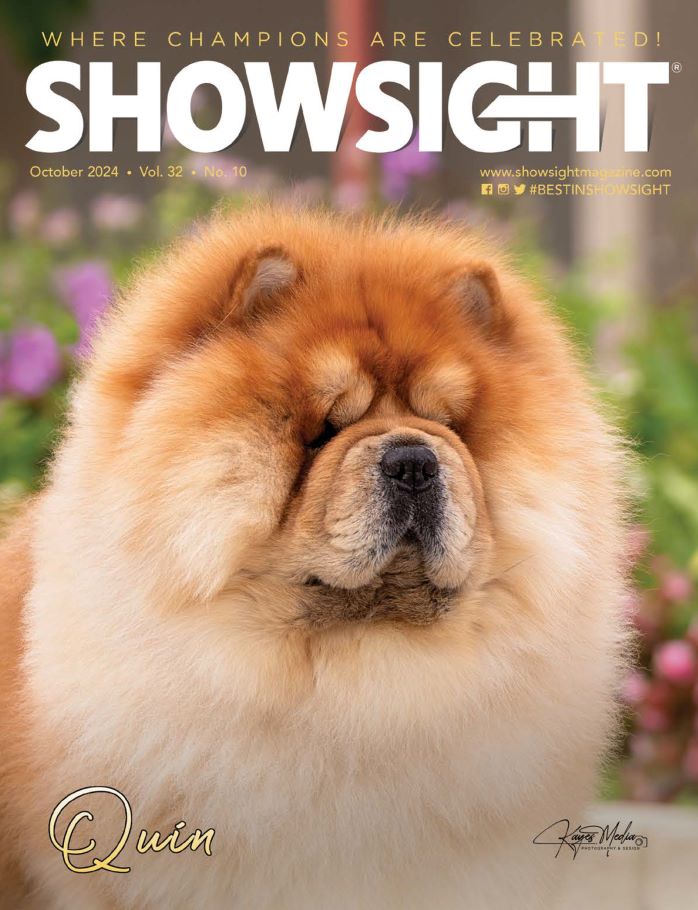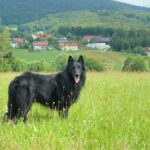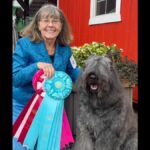Interview with Debbie Hibberd, Chairperson of the Mid-Kentucky Kennel Club
1. What is the name of your show/cluster?
Debbie Hibberd: I have been the Show Chair for the Mid-Kentucky Kennel Club for several years. I also took over as a Show Chair for one of the Louisville Kennel Club days this year. I replaced Melinda Lyon who is recovering from some medical issues. The other LKC day was chaired by Cindy Lane-Smith who recently relocated to South Carolina. The two clubs, along with the Evansville (Indiana) Kennel Club, chaired by Phil Smith, and the Greater Louisville Training Club, make up the Kentuckiana Cluster of Dog Shows, which is held in Louisville, Kentucky, in mid-March. In 2019, our Cluster was the second largest in the country—right behind the December Orlando shows.
2. Where are your shows held? When?
Debbie Hibberd: Our mid-March Cluster is held at the Kentucky Exposition Center, which is conveniently located right next to I-65 and the airport. The Thursday through Sunday Cluster consists of four days of all-breed shows. On the Wednesday before, we have a few additional Specialties. This year, GLTC also had Agility and FastCAT on Wednesday, plus there’s an Obedience Match. The Pomeranian National is earlier in the week at our host hotel across the street as well.
3. Can you please provide a brief history of your club?
Debbie Hibberd: The Mid-Kentucky Kennel Club was founded back in the 1950s. Its main focus was Conformation until the early 2000s. The club is now very active in Scent Work and Tracking as well. We hope to start with FastCAT in the near future. We have an active, growing membership that is very diverse in age and interests. Having a building where members can both train and meet is crucial to our club’s success. The Louisville Kennel Club was founded in 1886 and is one of the oldest in the country. I believe that its March 20, 1994 show, with an entry of 5,363, claims the distinction of being the largest one-day dog show in US history.
4. How are the following accommodated at your show/cluster: Parking; Grooming; Bathing; Hospitality; Vendors; Public Education?
Debbie Hibberd: All of these things are coordinated on the Cluster level. We have a Cluster Committee headed by Cluster Coordinator David Johnson. Representatives from each all-breed club meet approximately every three months. In addition, individuals are in charge of events that may or may not fall on their club’s day. Cathy Clapp of Mid-Kentucky handles two days of 4-6 Puppy Competition and the Open Show, and one of those days falls on a Louisville day. Our Meet the Breeds is on Evansville’s day but is handled by LKC member Lori Bewley. The Pee Wee and Itty Bitty Classes fall on the Evansville day as well, but are handled by LKC members. One key Cluster position we have is the Specialty Coordinator who serves as the liaison between breed clubs and the Cluster. Mid-Kentucky Kennel Club/Louisville Kennel Club member Rose Shacklett has done a fabulous job the past few years, though she recently passed the reins to LKC member Dianne O’Regan.
Parking—Unfortunately, parking is something we have no control over. We are in a state-owned facility, and it controls all the parking. We know the prices are high, but I do want everyone to know that the clubs DON’T GET A PENNY OF THAT INCOME. The good news is that there’s plenty of parking. Even the RV reservations and the parking lot are controlled by someone else. We have a huge number of RVs at our show, and people often make their reservation for the next year before they leave.
Grooming—We offer FREE reserved grooming to all exhibitors, so sending in that reservation form is essential. We have very little open space when the show starts. We pay PHA, under the coordination of Nina Fetter, to take care of it. Before the days of this reserved grooming, the doors would open and the exhibitors coming in looked like the Oklahoma Land Rush. Having the reserved spaces makes it much calmer.
Bathing—We have six tubs available for bathing right next to the grooming areas.
Hospitality—Hospitality is coordinated at the Cluster level and executed each day on the club level. Again, being in this facility locks us into one food vendor. It too is expensive; a soda or bottle of water costs us $5… and it only goes up from there. Our judges’ hospitality runs us thousands of dollars a day. The good news is that the food is very good. Food for the exhibitors is expensive too, but I’m pretty sure that some people enter our show just for the Ehrler’s ice cream. Can you say Bourbon Pecan Fudge?
Vendors—People come to Louisville to shop. This year we had over 65 vendors. It’s by invitation only, and we usually have a waiting list. Our Vendor Chair, Louise Keller, is the best! She works closely with the vendors to make sure they have a good experience. Little things, like providing them with lunch on their move-in day, go a long way. We don’t do anything fancy for them, but we appreciate them, and the rent income we receive goes a long way to help pay the bills.
Public Education—We have education booths set up each day by Mid-Kentucky and Louisville. We usually have a Meet the Breeds event on Saturday, which is very popular. This year we started an art contest for local students.
5. Does your show/cluster offer the National Owner-Handled Series? Junior Showmanship? 4-6 Month Beginner Puppy? Best Bred-By? Specialties? Supported Entries?
Debbie Hibberd: I think one of the reasons people like to come to Louisville is because we offer so much. With everyone watching their money these days, exhibitors can come to Louisville and compete in a variety of events. In addition to four days of all-breed shows, the Cluster offers Junior Showmanship, Obedience, Rally, Agility, FastCAT, Dock Diving, Owner-Handled, Bred-By, 4-6 Puppy Competitions, Open Shows, CGC and Trick Dog Testing, and Pee Wee and Itty Bitty Classes in addition to two days of Cardiac and Eye Clinics. We also host the Advanced Judges Institute. In 2023, we plan to have the return of Barn Hunt, Meet the Breeds, and Junior Judging.
In 2022, over the five days, we had a National, 26 Concurrent or Independent Specialties, 16 Regional Specialties, 89 Supported Entries, and 8 Sweepstakes—all of which helped to achieve 536 majors over the course of five days!
6. How are judging panels decided? Who stewards at your show(s)/cluster?
Debbie Hibberd: Our goal is to start with a core panel of 16 judges who can judge all four days. That selection starts at the club level. Each club submits a list of names. We then try to have a representative from each club meet as a group to select those 16. Additional judges are then hired and shared as needed. In addition, clubs are, of course, free to hire any individuals they’d like
for their day. We send the list to Specialty Clubs and try to honor their requests when we do our assignments. We work with a professional stewarding group to get our rings covered. It’s a challenge because of the size of our show. On Saturday, we have to cover 32 rings. This past year we used Wright Stewarding Association.
7. Are Breed Seminars and Judges Education offered?
Debbie Hibberd: The Breed Seminars vary from year to year, depending on the Specialty Clubs coming in. We host the Advanced Judges Institute every year as well.
8. How are your show(s)/cluster promoted? TV? Radio? Print Media? Social Media?
Debbie Hibberd: Our Cluster Advertising person, Lori Bewley, does a fabulous job. We have a big budget for promotion—almost $15,000. The main focus is TV. We have a great commercial that runs on several stations. In addition, we get a lot of free coverage from those stations. The NBC affiliate is especially dog friendly! On the Monday of the show, some of us appear with our dogs on one of their noon programs to talk about the Cluster. Once the shows begin, several of the stations send their morning remote reporter to spend several hours at the show doing up to eight live spots. I also did some live remotes with one station. We no longer use any radio advertising, and the only print media we do are ads in some of the dog magazines. We have a pretty heavy social media footprint. We, of course, have a website, and we just started an Instagram page. Our most successful and engaging tool is our Facebook page. It has almost 6,000 followers, and I have found it really helpful in communicating with exhibitors and disseminating information. This year, in particular, I got great feedback after the show regarding the page. From January to April, I stay busy posting show information and responding to questions. The rest of the year I try to keep people engaged by posting and sharing articles, cartoons, and event announcements from other clubs.
9. What are some of the challenges that you’ve had to face as show/cluster chair?
Debbie Hibberd: As a Cluster, we face the same two problems most other clubs face—rising costs and an aging membership. Our costs are astronomical. I’m sure that most of the public think our clubs make lots of money on the Cluster, which couldn’t be further from the truth. Our rent through the week is almost $100,000. We get charged for every little thing—including the boxes of dog magazines that are shipped to the Fairgrounds for distribution to exhibitors. I would guess that the average age of LKC and EKC members is between 65 and 70. Even the new members we attract seem to be on the north side of 40. Mid-Kentucky Kennel Club seems to be faring better. That club actually has members young enough to have children! I think the wider range of membership in Mid-Kentucky Kennel Club is due to the fact that we are fortunate enough to have a building with low rent, and we have members interested and active in a wider range of AKC events.
10. In the wake of the COVID-19 pandemic, what have you and your club members learned about putting on a dog show? What, if any, are the differences from previous years and how are you planning for the future?
Debbie Hibberd: March 13, 2020 is a day I’ll never forget. It was, appropriately, a Friday, and Cluster Coordinator David Johnson and the Show Chairs spent the day communicating with the Governor’s Office, the Mayor’s Office, and the Fairground officials about what to do as the world closed down around us. We ended up finishing that Friday show and sending everyone home. It was a shock to the dog world, and no one had any idea of what was to come. We’re back now… hopefully for good, but that lesson taught us that anything can happen. We now have a clause in our judges’ contract that addresses unforeseen issues like COVID, but that’s about it. It has definitely made us aware of the fine financial line we walk. This past year, we canceled Meet the Breeds and a Juniors dog judging event, but we plan to have them back in 2023.
